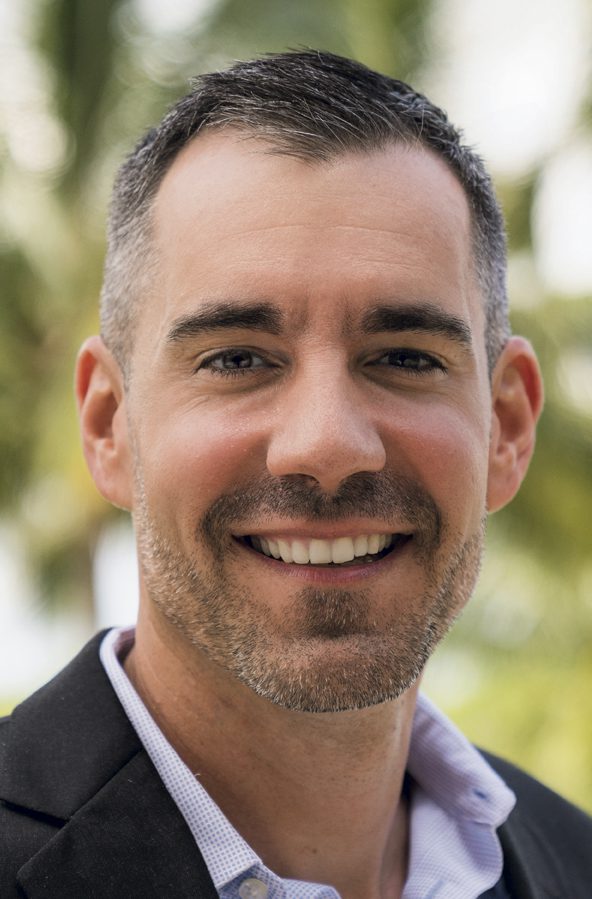Professional Development
THE AGENT LEADER
Sitkins Group podcast helps agency leaders become their best version possible
By Christopher W. Cook
We’re back.
Welcome to the second installment in our series on insurance podcasts. The names Roger Sitkins and Brent Kelly should be familiar to readers of Rough Notes magazine. If you’re reading this issue from cover to cover, you’ve already come across one of their names in the byline for the Sitkins Group’s “Winning Strategies” column. (Does anyone read magazines straight through?)
Debuting in 2017, The Agent Leader podcast from the Sitkins Group—hosted by its president, Brent Kelly—helps agency leaders make a commitment to become their best version possible. Previously a biweekly production, the podcast switched to a weekly format in 2021.
“The greatest challenge of agency leadership, regardless of title, is self-leadership,” Kelly says. “This podcast was designed to address agency leadership from multiple viewpoints: leadership of self, leadership of others, and providing tangible value that listeners can begin to apply right away.
“The goal is to help agencies sell more, retain more, and earn more—all by leading more effectively,” he adds.
Kelly, a motivating influencer, coach, and speaker, spent 15 years as a commercial lines producer and was named one of the top 12 young agents in the country in 2012.
Roger Sitkins, chief executive officer of the Sitkins Group, Inc., is a frequent guest on the podcast, which periodically interviews successful agency leaders and influencers. Guests on the podcast throughout the years have included:
- Mark Rollins, a former executive vice president of Brown & Brown of New York
- Jon Miles, chairman and chief executive officer, and Jim Lewis, executive vice president of property and casualty lines, of EHD Insurance, the Rough Notes December 2019 Agency of the Month
- Members of the Diebold Agency, the Rough Notes July 2018 Agency of the Month
- Miles Merwin, owner of Advisors Insurance Agency
- Hill Shaw, managing partner at Atlantic Shield Insurance, the Rough Notes June 2020 Agency of the Month
- Jeff Sargent, owner and agency principal of Community Insurance Group
While most of the episodes are solo presentations by Kelly, plans call for more guests to appear in 2021.
The early days
The Agent Leader podcast originated as the “Daily BizzGrowl” in 2016 before being rebranded with its current name in 2017. The original episodes were generally five to 10 minutes in length and covered topics like:
- Hope is not a strategy
- Why intentions bring zero results
- The number one reason people buy from you
- The only way to reach your true potential
- The only critics that count
- Seven principles of courageous leadership
- Why most insurance agencies are stuck
- The Rule of Five
After the rebrand, the podcasts increased in length, with most episodes today running between 15 and 30 minutes. The topics discussed continue to revolve around sales, retention, profitability, and leadership.
Episodes
Readers of Rough Notes’ “Winning Strategies” column will recognize a number of the topics shared in Kelly’s podcast episodes; however, a plethora of installments share information that has not appeared in the column, and they are available for your listening pleasure on Apple Podcasts, SoundCloud, Stitcher, and Listen Notes, among other platforms. Let’s look at the content from three episodes.
“3 Excuses to Not Leverage Virtual Presenting” is the most recent of our selected episodes. Released on October 21, 2020, the episode covers the concept of virtual selling and virtual presentations, a topic relevant to employees who currently are working remotely. Kelly mentioned that by the time of the episode’s release, the Sitkins Group had spent over 220 hours doing virtual presentations. Kelly provided three common excuses used by agency leaders for not going virtual:
- I don’t really need to do it. “The reason is like anything else that we hear with new ideas—this too shall pass,” Kelly said. “But there’s no doubt that the way your clients, carriers, and colleagues are dealing with things—no, the virtual part is not going to pass; it was already building prior to this. This idea of virtual, whether we say we’re fatigued or not, still has many advantages.” One of these is the elimination of travel time. With more time available, producers can make more appointments with clients.
- I’m not very good at it. “It’s weird. It’s different. I don’t like looking in the camera,” Kelly said. “Yep, it is different. It’s uncomfortable. But you’ve got to get comfortable being uncomfortable. “We spend over 90% of our time in a comfort zone. It’s okay; you need to have some comfort in your life, but you can get stuck there for a long time if you don’t push yourself. “It’s about practice and preparation; for years we’ve asked producers to record themselves just to get better. The same thing is true with virtual presenting.”
- I don’t know how to do it. “How do you learn about virtual presenting? Read books. Listen to podcasts. Watch videos,” Kelly said. “I watched a presentation and read Jeb Blount’s book Virtual Selling. If this is your profession, to communicate as a leader of any kind, why would you not read books and watch videos and listen to podcasts that may help you accelerate your learning? “Also, authenticity beats perfection. People respect and understand authenticity. We’ve all seen video calls where a kid walks in the room. That’s real. Weird things happen, and you just laugh and deal with it. Don’t worry about everything being perfect.”
Once you’re comfortable with virtual presenting, “Find a way to be compelling, a way to stand out,” Kelly advised.

—Brent Kelly
President
The Sitkins Group
“4 Barriers to Communication That are Limiting Your Results” aired on June 12, 2020.
“There are a lot of different forms and levels of communication,” Kelly said. “We don’t spend enough time thinking about and working on this vital skill of communication. You can either convince people, or you can connect with people. And there’s a huge difference.
“We should be building better relationships with our clients, future ideal clients, centers of influence, insurance carriers, partners, and colleagues. How do you lower the barriers?”
At this point in the podcast, as in other episodes, Kelly asked listeners to write this down if they could do so safely.
The four barriers are:
- Assumptions. “The idea is that I already know what you know, I already know what you think, and I already know how you feel,” Kelly said. “Speaker and author Jerry Ballard said, ‘All miscommunications are the result of differing assumptions.’”
- Arrogance. “It’s this inherited arrogance—especially when we look at insurance professionals, that we have the knowledge, the expertise, the training, and know what coverages you need,” Kelly said. “In many cases with agencies, there’s a level of arrogance that causes friction and cultural disruption. We have to watch out for that behavior.”
- Indifference. “It’s basically, ‘I don’t care to know,’” Kelly said. “Maya Angelou said, ‘People don’t care how much you know until they know how much you care.’ The best way you can show anyone that you truly care for them is by giving them a level of time and attention. “Sometimes we’re indifferent to people and we don’t even know it. It could be looking at your phone when someone’s talking to you.”
- Control. “Why do we not connect with people in many cases? Because we don’t let people in; I don’t want others to know what I know or how I feel,” Kelly said. “You’re not going to share every-thing; I get that. I do see that we don’t have candid conversations with those on our team. “Leaders often have a hard time being authentic and vulnerable. When you’re open and you share some vulnerabilities with people, they can relate to that.”
What are some things you can do to break down these barriers?
- Give people your time and attention
- Ask questions that matter
- Listen without judgment
Sticking with the theme of communications, “Three Questions to Ignite Your Communication” was an earlier episode, airing on August 29, 2019.
“There are three questions that you as an agency leader should be asking yourself before any important conversation,” Kelly said. “When we’re communicating with our team, carrier partners, marketing reps, or clients, how do we get greater impact? Often we find ourselves just saying things because we’re supposed to say things.”
- What do I want my audience to know? “Here’s the information I want to share with you,” Kelly said. “Just because you know lots of stuff, because you’ve read lots of things or talked with someone who gave you a lot of information, doesn’t mean you need to share it all. “Early on when I started to do workshops, I would say, ‘Here are the 12 steps to this,’ or ‘Here are the 14 ways to do this,’” said Kelly. “What I found quickly was that people couldn’t grasp them all. It was too much. What are the most important, impactful, and relevant things I want them to know? How much is too much?”
- How do I want them to feel? “What’s the emotional response that I want to draw from them?” Kelly asked. “How do I deliver the message? Maybe you want to convey inspiration. Maybe you want them to feel accountable. People buy emotion-ally and justify logically.”
- What do I want them to do? “What’s the call to action?” Kelly asked. “I need this from you. You’re required to do this, and here are the expectations.”
We’ll continue this series on podcasts in our next issue. Till next time …
For more information:
The Sitkins Group
www.sitkins.com






